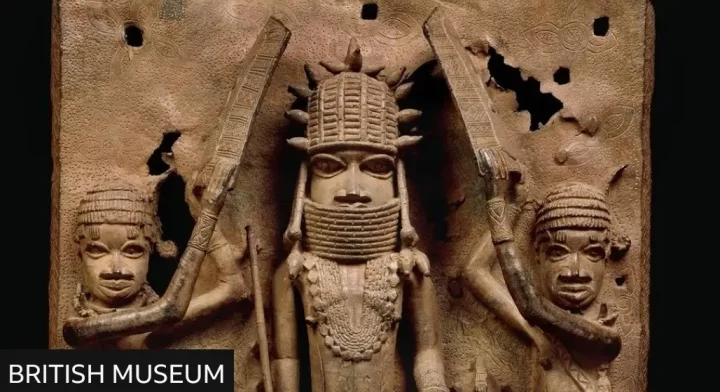
Exasperated by the long period of time it is taking some western countries to return as promised more of the looted Benin Bronzes which are still kept in their museums, art galleries and private homes, some Nigerian artists, both at home and in the diaspora, last week reassessed the situation and arrived at the conclusion that the rape of Africa, especially in her artefacts, is still ongoing.
Dr. Bolaji Ogunwo, painter and lecturer at the Department of Creative Arts, University of Lagos, made a fresh call on "those who have held these artefacts hostage and making fortune with them, to name their "ransom" so that this lingering discourse on repatriation can be laid to rest and the works in exile returned at last."
Dr. Ogunwo, briefly recounting what happened to the Benin Bronzes over a century ago, told Vanguard that "Benin was robbed at gunpoint during the 1897 punitive expedition, and myriad of works of art in their numbers were "kidnapped". The rape of Africa is "still going on, actively and passively," Dr. Ogunwo submitted.
Fidelis Ugochuku Atumah Abiamuwe, Nigeria-born influential sculptor and painter based in New York, USA, does not just talk about the looting of Benin Bronzes, the rape of Africa forms the themes of some of his works. For instance, one of the most captivating works Atumah Abiamuwe painted is titled "When will Africa be free from Colonialism and Exploitation?"
"Africa," Atumah Abiamuwe argues, "is endowed and admired. She is exploited, oppressed, used, looted, raped, abused, left to bleed and abandoned by her beneficiaries." The painting which depicts Africa as a young virgin captures the rape of the continent which the artist insists is still ongoing.
"The plundering, looting and exploitation of Africa's great wealth is still going on. This time there is a shift of interest from artifacts and antiquities. Their focus now, as it has always been, anyway, is more on Africa's mineral resources - oil, gas, gold, uranium, bauxite, etc., in collaboration with African leaders, politicians, elites, aristocrats and even the military."
After the initial resistance to the idea of restitution, some individuals and countries in the west, out of guilty conscience, took steps to return some stolen artefacts in their possession to Nigeria from where they were originally looted. They also promised to return more items. But in recent times, those countries and individuals have been reluctant to return more stolen artifacts. That reluctance was preceded by the ideas thrown up by proponents of a shared and universal heritage which support that illegally acquired works be kept in what they called 'encyclopedic' or 'universal' museums, all located in Europe and America.
It would be recall that in 2002, some western countries and their museums signed a document titled "Declaration on the Importance and Value of Universal Museums" which aimed at justifying the keeping in Europe and America, artworks and artefacts stolen from other parts of the world, especially from the ancient Benin Kingdom.
The claims of the proponents of a shared and universal heritage was that they are keeping the art of the world in trust for mankind, instead of the idea that the artefacts should all be returned to the countries and cultures that originally own them.
As Peju Layiwola, artist and professor of art history at UNILAG wrote, "It has been noted that almost all the signatory museums to this preposterous declaration belong to the nation states that signed the final document of the 1884/1885 Berlin Africa Conference."
The history of Benin Bronzes restitution
Eighty-six years ago, in 1938, the British returned pieces of Oba Ovonramwen's coral regalia to his grandson, Oba Akenzua II. Oba Ovonramwen had been exiled in 1897 following the British conquest of Benin and stealing of many royal artifacts belonging to the kingdom. The British claimed that the return of pieces of Oba Ovonramwen's coral regalia restored some of the sacred force of their ancestors.
After 19 years, in 1957, Josephine Walker donated a carved 6-foot-tall Benin Ivory tusk to the Jos Museum. Fifty-seven years later, on 20 June 2014, Dr. Adrian Mark Walker, the grandson of Josephine Walker, returned two bronze works - a bird (Ahianmwen Oro) and a bell (Egogo) looted by his grandfather - to the Oba of Benin, HRM Uku Akpolokpolo Erediauwa I.
Dr. Adrian Mark Walker was a grandson of Captain Herbert Sutherland Walker, a Special Forces agent attached to the British Expeditionary forces that conquered Benin. According to reports, the British stole about 4,000 objects from Benin kingdom in 1897.
Prof. Layiwola had extensively quoted Dr. Adrian Mark Walker as he narrated what she called "a long personal history of how he came to return the Benin objects":
"These objects have come on a rather long journey. These objects only came into my formal possession recently with the death of my mother. I remember seeing them in my grandmother's house fifty-five years ago and really coveting them. I thought I would really be proud to own such beautiful objects.
"However, as soon as they came into my possession, I realized that if they meant a lot to me because of their connection with my grandfather, they must mean a lot more to the people of the place from where they had come. Before my mother died, I took the precaution of asking her if I could take care of them... I knew that she would not consent to my returning them at that stage because she is one from a very materialist generation.
"My children, on the other hand, had no such materialist ambition. I was very pleased to be in possession of them because they reminded me of my grandparents. But when I heard from my children that they were not interested in the stuff, I knew that I had to do something to protect their future," Dr. Adrian Mark Walker narrated.
In October 2021, Jesus College, a part of the University of Cambridge, returned a Benin Bronze cockerel (The Okukor) to the Oba of Benin, Omo N'Oba N'Edo Uku Akpolokpolo, Ewuare II. By that act, Jesus College of the University of Cambridge became the first institution in the world to return a Benin Bronze to Nigeria.
Finally, on December 20, 2022, Germany's Foreign Minister Annalena Baerbock handed to Nigeria at a ceremony in Abuja, 22 artefacts stolen from Benin in 1897. The return of the 22 Benin Bronzes followed a deal made earlier that same year to transfer ownership of more than 1,000 of those priceless artefacts. 'Benin Bronzes' is a collective name given to the carvings, tusks, statues, plaques, headpieces, silhouettes and weaponry stolen by the British from the ancient kingdom of Benin in 1897.
The Challenges
Reporting the return of the 22 artefacts, the BBC had said: "In 2026, the (Nigerian) government plans to open the Edo Museum of West African Art in Benin City, which is being designed by British-Ghanaian architect, Sir David Adjaye, to house the largest collection of Benin Bronzes ever assembled."
Unfortunately, the planned establishment of Edo Museum of West African Art in Benin City became embroiled in disputes. Controversies over who was entitled to keep the returned artefacts emerged, but was later resolved by the president who gave the right of ownership to the Oba of Benin. But even at that, no one is certain where all the returned artefacts are kept. A lot of questions are asked about the returned artefacts by those who desire to view them, but little or no answers come forth.
While the lack of information about the returned artefacts and their shielding from public view persist, the promised return of more bronzes is delayed, and the rest of the artefacts in Europe and America continue to make more money for those countries. Thus, the rape of Africa continues, this time, in active or passive collaboration with Africans themselves.

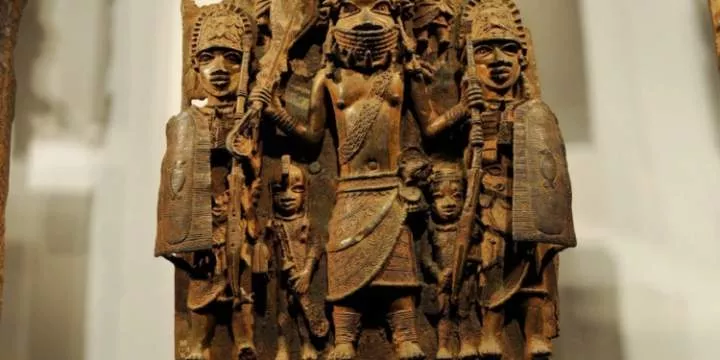
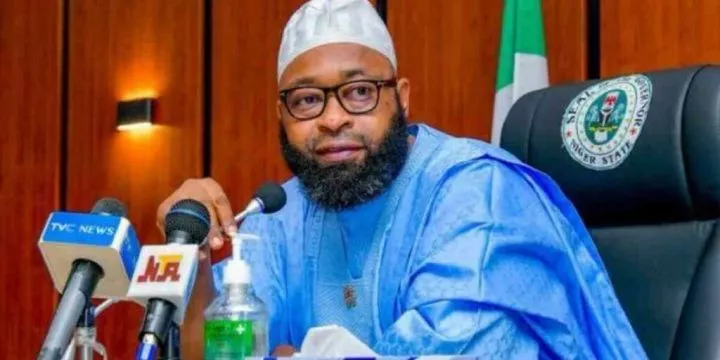



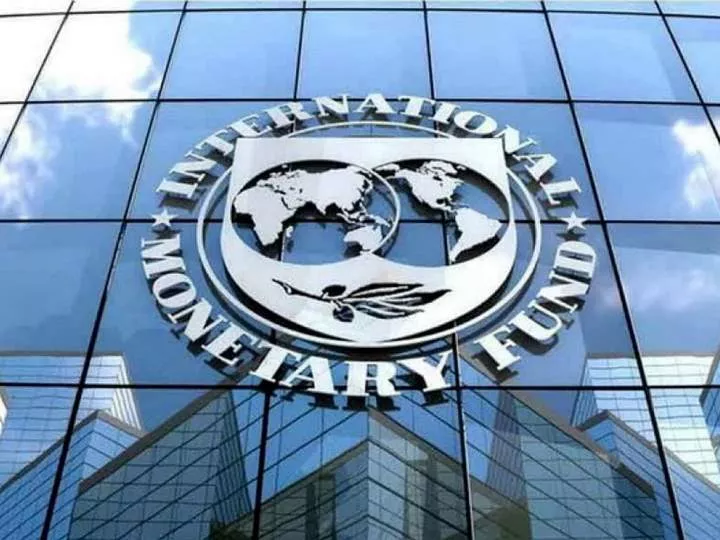

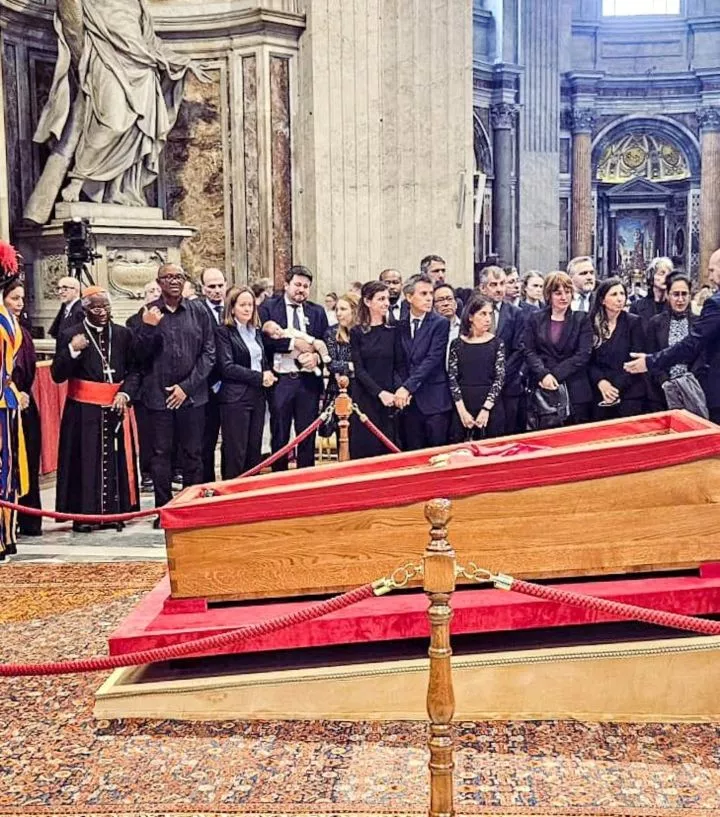


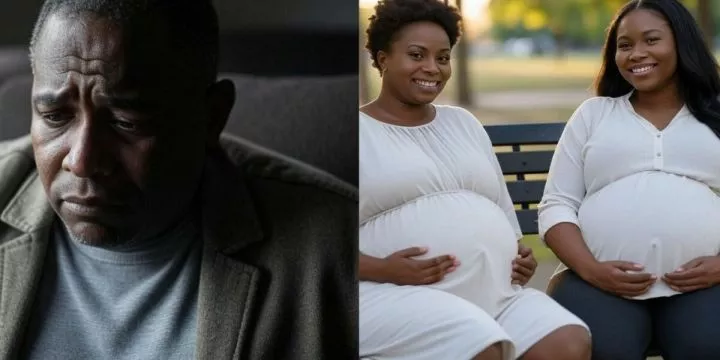

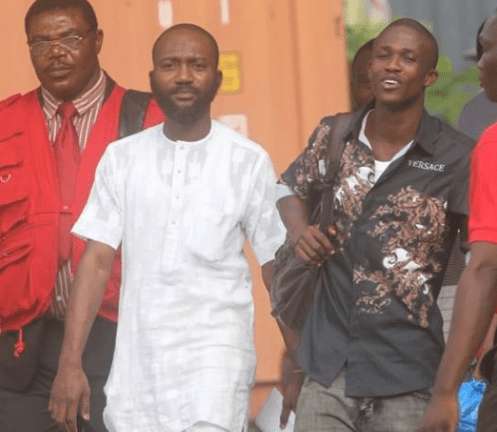


Comments